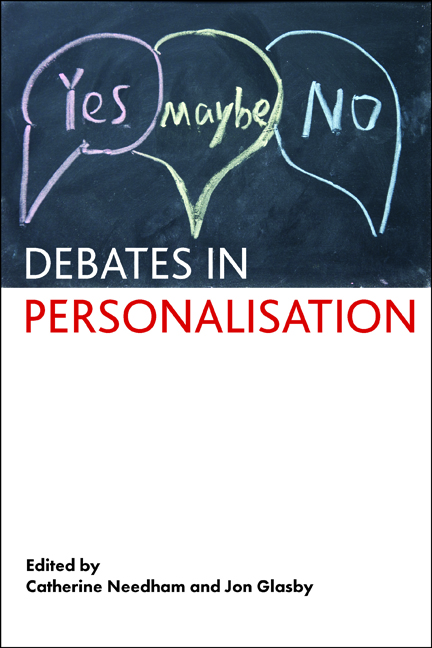Book contents
fourteen - Evaluation of the personal health budget pilot programme
Published online by Cambridge University Press: 04 March 2022
Summary
Personalisation and consumer direction are well-established policy initiatives in long-term care (OECD, 2005). With close links to longterm (social) care, these measures are also being considered for healthrelated support for people with long-term conditions. In 2009, the Department of Health (DH) in England announced a pilot programme to explore the use of personal health budgets (PHBs) for people with long-term health conditions such as chronic obstructive pulmonary disease (COPD), diabetes, mental health, and also for people likely to have significant co-morbidities using NHS Continuing Healthcare services. The underlying rationale was similar to that expounded in long-term care initiatives. Personalisation was viewed as a mechanism to encourage choice and control among individuals who use services, which in turn would have the possibility to control increasing costs.
The potential scope of these initiatives in healthcare is substantial. The DH in England estimated that around 15 million people in England (30% of the population) have at least one long-term health condition, accounting for 70% of the health and social care budget (DH, 2012d). In addition to the costs that can be attributed to long-term health conditions, there is a significant impact on people's lives that also needs to be considered (DH, 2012d). The personalisation agenda acknowledges this impact by putting individuals at the centre of all decisions made about them, with the aim of giving them greater choice and control over how services are managed. It has been suggested by the DH that personalisation, information, choice, supported self-care, shared decision making and service integration will become the norm for people with a long-term health condition (DH, 2012d).
In the healthcare system, personal health budgets are viewed as one mechanism to achieve the aim of giving people greater choice and control by offering a new way of managing services to meet health needs. Three distinct principles underlie personal health budgets: following assessment a budget is made known to the patient before the support/care planning stage; patients are encouraged to play a central role in the support/care planning process; and patients can choose how they would like to manage their personal health budget (DH, 2009c).
- Type
- Chapter
- Information
- Debates in Personalisation , pp. 125 - 132Publisher: Bristol University PressPrint publication year: 2014
- 1
- Cited by



